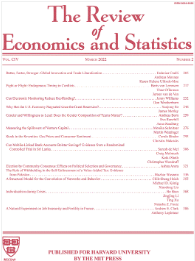REVIEW OF ECONOMICS AND STATISTICS
Publicado:
Clasificación JEL:
D72, D73, H54, K13, R11

Lo más reciente
Luis E. Arango, Luis E. Arango, Luz Adriana Flórez, Carlos Esteban Posada
Oscar Iván Ávila-Montealegre, Anderson Grajales, Juan José Ospina-Tejeiro, Mario Andrés Ramos-Veloza
Olga Lucia Acosta Navarro, Andrés Felipe Chitán-Caes, Ana María Iregui-Bohórquez, Ligia Alba Melo-Becerra, María Teresa Ramírez-Giraldo, Jorge Leonardo Rodríguez Arenas
This paper studies the executive-legislative exchange of centrally-allocated benefits (jam) for legislative support in Colombia using data from road building projects, legislative roll-call votes, and a leaked database which uncovered the assignment of road contracts to individual legislators. We draw hypotheses from a model in which an executive spreads jam to sway legislators. We document that assigned projects had excess costs, legislators targeted were more likely to be swing voters in congress, and legislators increased their support for the executive after their contracts were signed. The results are driven by legislators representing remote regions and constituencies with weaker political institutions.

 Morales Juan S.
Morales Juan S.